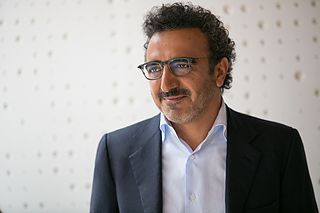A Quote by Marie-Chantal Claire
I was spending most of my summers in Greece when I was a little girl, and at boarding school my first room-mate was Greek, so I guess I kind of had that Greek destiny.
Related Quotes
Greek customs such as wine drinking were regarded as worthy of imitation by other cultures. So the ships that carried Greek wine were carrying Greek civilization, distributing it around the Mediterranean and beyond, one amphora at a time. Wine displaced beer to become the most civilized and sophisticated of drinks—a status it has maintained ever since, thanks to its association with the intellectual achievements of Ancient Greece.
All the Greek mythic heroes had gone east, but they were myths. Achilles was a myth. Perseus, Theseus, Hercules... they probably existed in some form. But they all went east. That's where a Greek went to make his bones so to speak. And Alexander the Great was the first man who actually went east not to plunder, not to loot and come back to Greece - which is where the Macedonians wanted to go back with the money. He stayed. And he became half-Eastern.
This is a very special Greek kind of socialist, all the social democratic parties in Europe are against this idea and I think that the dividing line today in the Greek political system is not the centre right or socialist, the real dividing line is between those parties and those political forces who really believe that Greece should stay in the Eurozone and make the efforts and change, and make the reforms and change the old and Mr Tsipras who is really resisting any kind of change in Greece.
Greeks have to know that they are not alone ... Those who are fighting for the survivor of Greece inside the Euro area are deeply harmed by the impression floating around in the Greek public opinion that Greece is a victim. Greece is a member of the EU and the euro. I want Greece to be a constructive member of the Union because the EU is also benefiting from Greece.
Seldom can two such epoch-making events have occurred in successive years as happened then. In 1453 the Turks stormed Constantinople and finally destroyed the Greek Empire, driving out Greek scholars, who carried the knowledge of Greek language and literature to the western world; and in 1454 the first document known to us appeared from the printing press at Mainz.
I suppose there is no place in the world where snobbery is quite so ever-present or where it is cultivated in such refined and subtle forms as in an English public school. Here at least one cannot say that English ‘education’ fails to do its job. You forget your Latin and Greek within a few months of leaving school — I studied Greek for eight or ten years, and now, at thirty-three, I cannot even repeat the Greek alphabet — but your snobbishness, unless you persistently root it out like the bindweed it is, sticks by you till your grave.






































